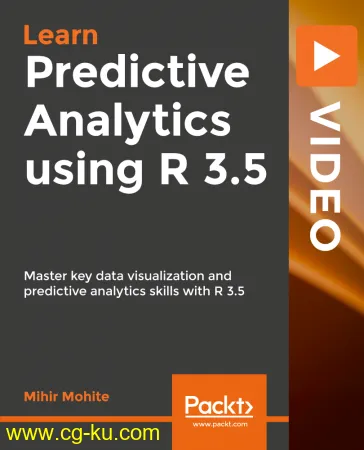Duration: 2h 8m | Video: h264 1920x1080 | Audio: AAC 48kHz 2Ch | 571 MB
Genre: eLearning | Language: English | September 27, 2019
Explore advanced techniques and algorithms for predictive modeling to gain insights from your data
Learn
Apply various techniques and modeling algorithms by using R for ML tasks
Estimate and measure the performance of models used for regression and classification problems
Implement spot-checking methods for linear and nonlinear algorithms
Compare and select trained models and summarize the results with plotting techniques
Tune and apply machine learning algorithm hyperparameters with different methods
Summarize your data using descriptive statistics
About
Predictive modeling uses statistics to predict outcomes of events. It can be applied to any type of unknown event, regardless of when it occurred. This course will introduce you to the most widely used predictive modeling techniques and their core principles.
This course will help you to perform key predictive analytics tasks, such as training and testing predictive models for classification and regression tasks, and scoring new data sets. The course covers the most common data mining tools, such as k-means, hierarchical regression, linear regression, association rules, principal component analysis, multilevel modeling, k-NN, Naïve Bayes, decision trees, and text mining. It also describes visualization techniques using core tools to visualize patterns in data organized into groups.
By the end of the course, you will be able to design your own machine learning predictive models using R 3.5.
The code bundle for this course is available at:
Features
Build ML models to carry out exploratory data analysis for gaining insights into accurate predictive modeling on newly uncovered data
Explore various techniques in R and its libraries to make accurate predictions and deliver great results
Design and build your own machine learning predictive models using R libraries and functions


发布日期: 2019-09-27